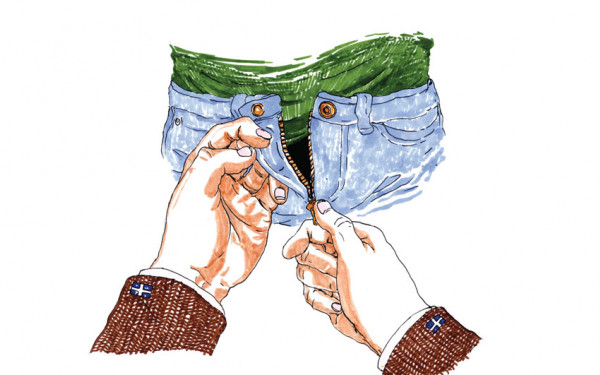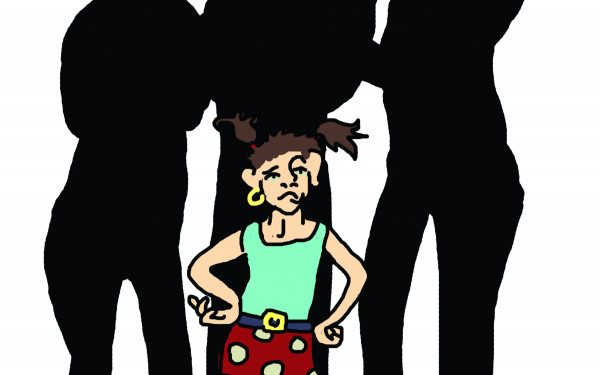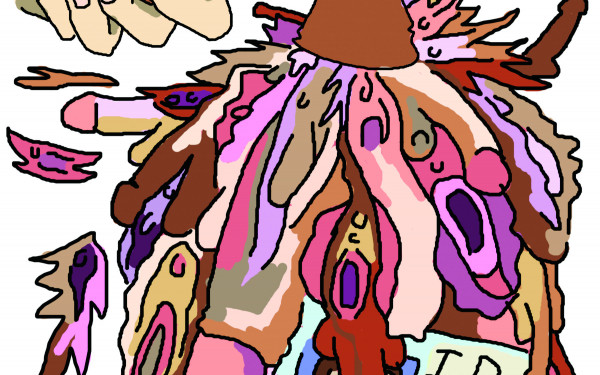A Night to Remember
Transgender Day of Remembrance Vigil Held at Norman Bethune Square
Holding candles and paper bags, people of all genders stood in a circle at Norman Bethune Square on Thursday at a vigil in remembrance of people who lost their lives to transphobic violence.
“Almost every transgender lives with the knowledge that ‘this could be the day that somebody decides to hurt me because of who I am,’” said Ché Baines, Health and Resources Coordinator at Queer Concordia..
Transgender Day of Remembrance strives to raise public awareness of the hate crimes committed against transgender people worldwide and to honour their memory.
The movement began after the murder of Rita Hester, an African-American transwoman, in 1998. Hester was stabbed to death in her apartment.
A web project called “Remembering Our Dead” was created to commemorate not only Rita’s death but all those who have lost their lives to anti-transgender violence.
“I’m not sure if understanding is what we need,” said Ché Baines. “We need acceptance of the fact that we all exist and that every experience is valid.”
Candlelight vigils are now held internationally annually on November 20. Although certain elements may differ from country or group, the names of the victims are always recognized and read out loud.
“Trans issues are still a very serious human right issue,” said Sam Bell-Moar, communications coordinator at Queer Concordia. “Trans Day of Remembrance is to acknowledge the fact that trans people face disproportionate amounts of violence and oppression.”
According to the National Coalition of Anti-Violence Programs (NCAVP), anti-LGBTQH murders increased from 27 in 2010 to 30 in 2011, which is an 11% increase. This is the highest number of murders recorded by the NCAVP.
“If you see a woman and she doesn’t fit your idea of what a woman should look like, why is it important that you call that out?” said Baines.
“A lot of transpeople violence comes out of just ignorance that turns ugly,” said Ché Baines.
Queer Concordia made some changes to the vigil this year to become more inclusive. People were given the chance to share their own experiences either by writing a message or a person’s name.
“I have a lot of friends who I take with me when I go to Transgender Remembrance events,” said Baines. “I’ve lost quite a few friends.”
Sam Bell-Moar announced her dedication to the memory of a transgender woman named Jennifer who was murdered in the Philippines by a U.S. Marine.
“People I know in the Philippines are outraged by this, and I think we should be as well,” said Sam Bell-Moar. “For that reason, I dedicated my candle and my vigil to her.”
There are still many stereotypes prevalent in society surrounding the transgender community, such as the assumption that all transgender people are mentally ill and therefore that being transgender in itself is a mental illness.
“Until recently, being trans was an officially diagnosed mental disorder,” said Baines.
Other stereotypes range from associating all transgender women with sex workers and transgender men with “women who internalize misogyny.”
“Trans women are just seen as men in dresses, which is not correct at all,” said Baines. “They’re women in whatever clothes they choose to wear.”
“It is not your place to speak over them, it’s your place to sit back and listen, consider what they’re saying, and listen to people when they tell you, ‘this is how you can be an ally to me,’” said Bell-Moar.
Baines is also part of Trans Concordia, which started last year as an offshoot of Queer Concordia in order to gain more visibility and representation. The organization will offer more meetings and events in the winter semester.
“I wanted a space that was guaranteed to be trans people-positive for trans people to talk about our experiences in a place that was only for us,” said Baines.

1_900_482_90.jpg)
2_900_543_90.jpg)
3_900_501_90.jpg)





